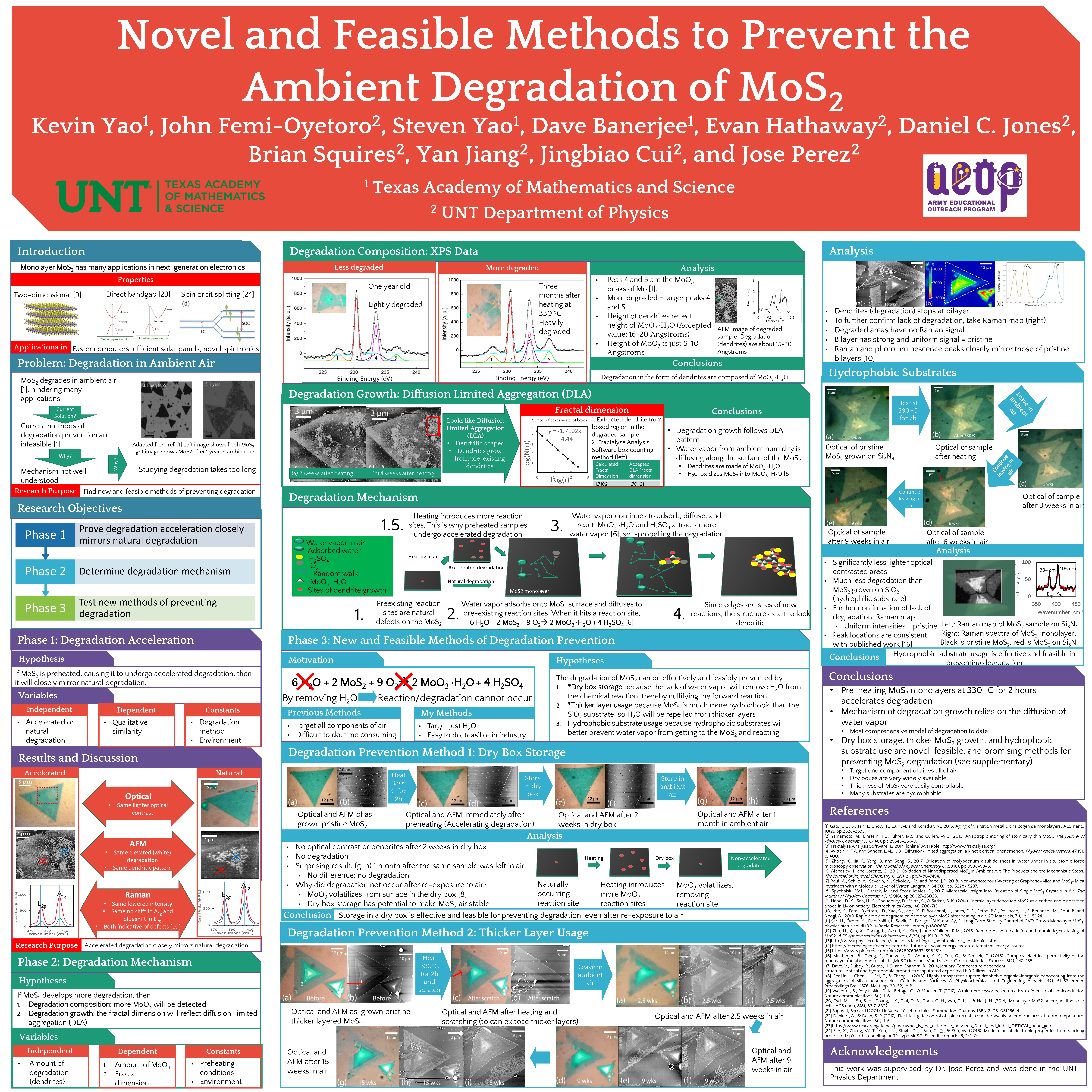First Name:
KevinLast Name:
YaoMentor:
Jose PerezAbstract:
MoS2 monolayers (a single layer of molybdenum disulfide) are one of the most studied 2 dimensional (2D) transition metal dichalcogenides (TMDs). These monolayers have remarkable semiconducting and optical properties, such as a direct bandgap and exceptionally large spin-orbit coupling and exciton binding energy, offering many novel potential applications in electronics and optoelectronics that will result in faster computers and more efficient solar panels. However, the degradation of MoS2 after long-term exposure to ambient air conditions is an impediment to their implementation in industry. Making matters worse, degradation takes time on the order of years to develop, which makes studying the degradation mechanism and testing possible prevention techniques extremely challenging. In my research, I have pioneered new and feasible methods to prevent degradation of MoS2 monolayers, including dry box storage, hydrophobic substrate use, and thicker-layered growth. In order to accomplish that, I first discovered a novel method to accelerate the degradation of MoS2, thereby allowing for the quick observation of the degradation process and testing of possible prevention techniques. Using this method, I have studied the mechanism for the degradation of MoS2 monolayers and pinpointed water surface diffusion as the agent that advances degradation. Understanding this mechanism allowed me to propose and realize novel and feasible degradation prevention tactics. These breakthroughs stand to facilitate the development of next-generation air-stable devices.Poster:





